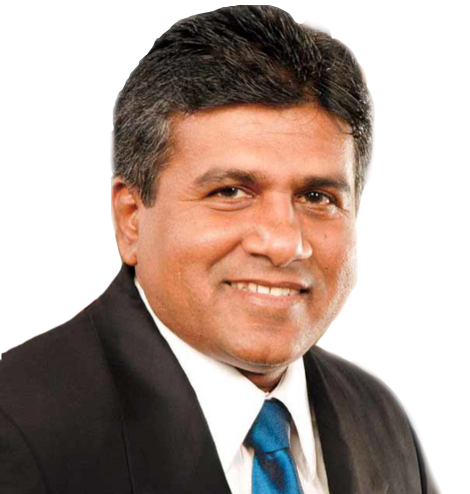Fact Check
The minister made this statement in the context of calls for the abolition of the executive presidency. In his statement, he claims that the executive presidential system cannot be abolished by way of an amendment, but only by enacting a new constitution. This may be read as claiming that (1) an amendment is not legally permissible, OR (2) it is not practically possible.
To evaluate this claim, FactCheck.lk examined the provisions of the constitution, and determinations of the Supreme Court (SC).
As for claim 1, Article 75 of the constitution describes parliament’s legislative power, which includes the power to make laws repealing or amending any provision of the constitution, or to add any provision to it. Parliament is restricted only from making any law suspending the operation of the constitution or any of its parts, or repealing the constitution as a whole without enacting a new constitution to replace it. Chapter XII of the constitution is titled ‘Amendment of the Constitution’ and elaborates the procedural requirements for constitutional amendments.
The SC examined the scope of parliament’s power to amend the constitution in its determination on the bill to enact the 13th Amendment to the Constitution. The court considered arguments that Sri Lanka’s constitution had a “basic structure” which could not be changed by way of amendment. By its majority decision, the court rejected this argument in light of the clear constitutional provisions, and concluded,
“But both our Constitutions of 1972 and 1978 specifically provide for the amendment or repeal of any provision of the Constitution or for the repeal of the entire Constitution-Vide Article 51 of the 1972 Constitution and Article 82 of the 1978 Constitution. In fact, Article 82(7) of the 1978 Constitution states “in this chapter “Amendment” includes repeal, alteration and addition.” In view of this exhaustive explanation that amendment embraces repeal, in our Constitution we are of the view that it would not be proper to be guided by concepts of ‘Amendment’ found in the Indian judgments which had not to consider statutory definition of the word ‘Amendment.’ Fundamental principles or basic features of the Constitution have to be found in some provision or provisions of the Constitution and if the Constitution contemplates the repeal of any provision or provisions of the entire Constitution, there is no basis for the contention that some provisions which reflects fundamental principles or incorporate basic features are immune from amendment. Accordingly, we do not agree with the contention that some provisions of the Constitution: are unamendable.” (In Re the Thirteenth Amendment to the Constitution and the Provincial Councils Bill (1987) 2 Sri L.R. 312, at pages 329-330)
In its determination on the Bill to enact the 20th Amendment to the Constitution, the Supreme Court considered the same argument and arrived at the same finding –
“Furthermore, it is pertinent to observe that Articles 1, 2 and 3 of the Constitution expresses the nature of the State and the Sovereignty of the People. They encapsulate core features described in the preamble to the Constitution. Article 120(a) read with Article 83 of the Constitution provides that Articles specified therein, including Article I of the Constitution can be amended if such amendment is approved by People at a Referendum in addition to it being passed with the special majority in Parliament. Hence, we are unable to agree with the contention that some of the provisions of the Constitution cannot be amended even with the approval of the People, in addition to the special majority in Parliament.” (“Twentieth Amendment to the Constitution”, S.C.S.D. No.s 01/2020–27/2020, and 29/2020-39/2020)
On the face of Article 75, and in light of the SC’s jurisprudence, any provision or provisions of the constitution can be amended by parliament. Thus, the executive presidential system can be abolished by way of constitutional amendment, provided that any articles linked to such system are suitably amended.
Claim 2 goes to the practicality of drafting an amendment that abolishes this system. The draft bill presented by the Samagi Jana Balavegaya seems to have overcome the practical hurdle claimed by the minister, by amending all relevant constitutional provisions relating to the appointment, powers, and decisions of the president, which exist throughout the constitution. The SC determination on this bill records that it was common ground among all counsel appearing in the case that the principal purpose of the Bill is to abolish the executive presidential system. This case in point shows that the onerousness of the task does not prevent it from being practically achievable.
Therefore, we classify this statement as FALSE.
*FactCheck.lk’s verdict is based on the most recent information that is publicly accessible. As with every fact check, if new information becomes available, FactCheck.lk will revisit the assessment.
Sources
The Constitution of the Democratic Socialist Republic of Sri Lanka (1978)
In Re the Thirteenth Amendment to the Constitution and the Provincial Councils Bill (1987) 2 Sri L.R. 312
“Twentieth Amendment to the Constitution” (S.C.S.D. No.s 01/2020 – 27/2020, and 29/2020 – 39/2020)
“Twenty First Amendment to the Constitution” (S.C.S.D. No.s 31/2022, 32/2022, 34/2022, 36/2022, and 37/2022)


